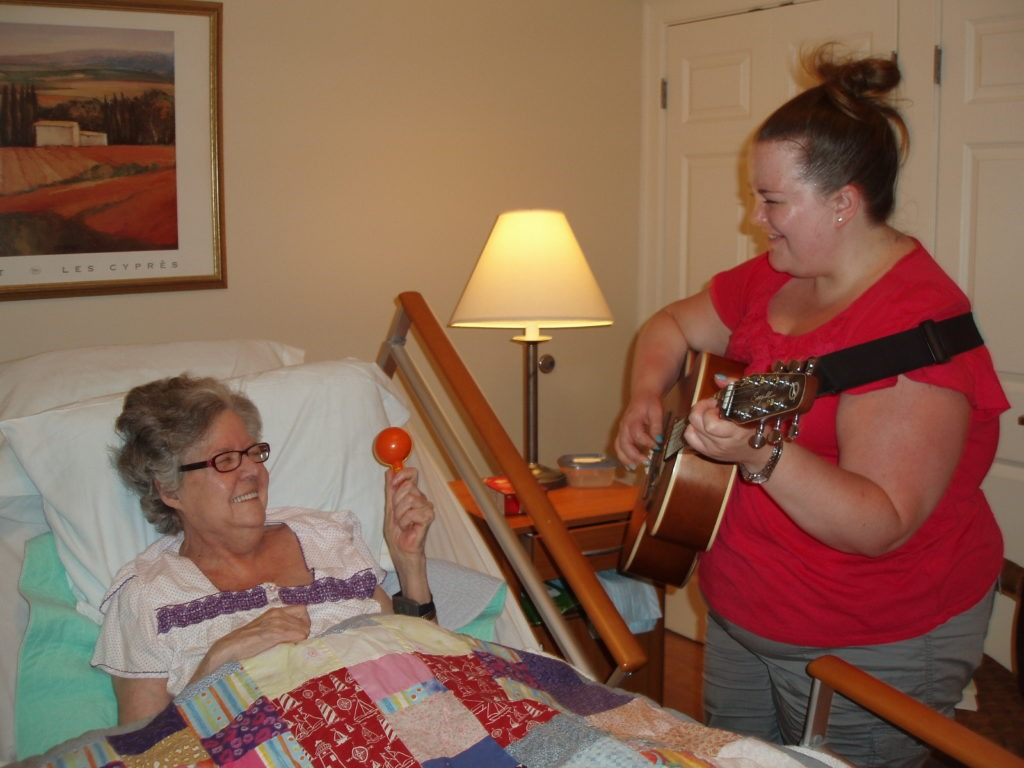Palliative care musical “Night Side Songs” brings a unique and poignant perspective to the stage, addressing the often taboo subjects surrounding serious illness and end-of-life care. This groundbreaking production, developed in collaboration with palliative care specialist Susan Block, helps to illuminate the emotional landscape of patients, caregivers, and clinicians alike. Through its rich storytelling and moving melodies, the musical explores the insights and struggles of those grappling with cancer, resonating deeply with audiences who have faced similar challenges. The Lazour brothers, drawing inspiration from Susan Sontag’s reflections on illness, crafted a narrative that invites viewers to reflect on their own experiences with mortality. “Night Side Songs” not only entertains but also fosters essential conversations about illness and compassionate care, serving as a valuable addition to the world of palliative care theatre.
In the realm of theatrical storytelling, the term “palliative care musical” serves as a powerful vehicle for conveying the complexities of illness and the human experience surrounding it. Productions like “Night Side Songs” resonate with anyone who has confronted the realities of serious health challenges, allowing audiences to engage with themes of compassion, hope, and the fragility of life. Inspired by cultural critiques of health and disease, this type of performance art provides a space for reflection on end-of-life scenarios and the emotional journeys of those involved. By utilizing the platform of musical theatre, creators seek to dismantle the stigma surrounding discussions of mortality, inviting audiences to openly explore their feelings and fears. Such narratives are essential, as they transform personal challenges into collective experiences that foster understanding and empathy amidst the ever-present realities of health care.
Exploring Palliative Care Through Artistic Expression
Palliative care is often seen as a somber subject, focusing on the challenges of managing life-limiting illnesses and ensuring quality of life in the face of death. However, the musical ‘Night Side Songs’ proposes a unique approach to this delicate topic by using artistic expression to explore the emotional landscapes of patients, caregivers, and healthcare professionals. By engaging with themes of illness, healing, and grief through music and storytelling, the creators aim to demystify the often-taboo subject of end-of-life care. This innovative method not only provides a platform for discussing serious issues but also helps in creating a communal experience where shared emotions can be validated and expressed.
Through the lens of a musical, audiences can encounter the raw realities of illness in a transformative manner. The incorporation of palliative care theatre as a medium fosters an environment where difficult conversations around death and dying can arise naturally. The rich, moving narratives presented in ‘Night Side Songs’ invite viewers to reflect on their own experiences with illness, allowing for a deeper understanding of the vulnerabilities connected to life-threatening medical conditions.
Furthermore, the collaboration with palliative care specialists like Susan Block emphasizes the authenticity of the experiences portrayed in this theatrical work. Block’s extensive background in psychosocial oncology enhances the narrative’s credibility, providing a thorough depiction of the psychological and emotional complexities faced by patients and families during end-of-life care. Her insights shaped the musical’s direction, ensuring it resonates with audiences on both an intellectual and emotional level. It becomes clear that this isn’t just entertainment; it’s a powerful reminder that conversations about sickness and mortality are essential in our society.
The Impact of ‘Night Side Songs’ on Perceptions of Illness
‘Night Side Songs’ offers a fresh perspective on how society views illness and the experience of dying. By transforming a typically clinical subject into a theatrical work, it challenges conventions and encourages audiences to confront their feelings about mortality. The musical navigates the emotional upheaval that often accompanies serious illness, portraying the fear, hope, and resilience exhibited by patients and their loved ones. This portrayal of cancer care transcends traditional narratives, inviting a more nuanced conversation about the realities of living with illness and the uncertainties that come with end-of-life scenarios.
Susan Block notes that a central theme of the musical is how crucial it is to communicate openly about these experiences. By highlighting the often unspoken fears surrounding illness, ‘Night Side Songs’ serves as a poignant reminder that acknowledging our vulnerabilities can lead to healing and connection. The work elegantly mirrors the sentiments shared between caregivers and patients, highlighting the empathetic bonds formed in palliative care settings. As more people engage with this musical, it has the potential to shift cultural perceptions, opening up vital discussions on the human experience of death.
Moreover, the intimate performances at smaller venues, as discussed by A.R.T. Artistic Director Diane Paulus, play a crucial role in enhancing the audience’s engagement with the material. The innovative theater format encourages a participatory experience, allowing attendees to sing along and contribute to the atmosphere of collective reflection. This intimacy fosters a sense of community, making the dialogue surrounding illness feel more accessible and less isolating. Ultimately, ‘Night Side Songs’ not only entertains but also empowers audiences to share their own stories, creating an environment conducive to healing through acceptance and understanding of life’s impermanence.
The Role of Music in Palliative Care
Music has long been recognized as a powerful tool in palliative care, providing comfort and emotional release for patients facing serious illness. In ‘Night Side Songs,’ music plays a central role in facilitating expression and connection, making the often painful discussions surrounding cancer and end-of-life care more approachable. Through the melodic storytelling, the musical engages audiences in a shared exploration of grief, resilience, and hope. The juxtaposition of beautiful music against the backdrop of difficult subjects serves to elevate the emotional resonance of the narrative, allowing both performers and audience members to connect on a deeper level.
Additionally, the use of music in ‘Night Side Songs’ underscores the universality of the palliative care experience. As the characters grapple with their circumstances, the music becomes a shared language that transcends barriers, inviting all attendees to reflect on their own experiences with illness, loss, and healing. This can create a therapeutic effect, allowing for catharsis and understanding. By incorporating musical elements in the portrayal of serious subjects, ‘Night Side Songs’ helps to establish the notion that while illness can be isolating, shared experiences and connections can provide solace.
Moreover, the emotional impact of the score composed for ‘Night Side Songs’ cannot be overstated. The music enhances the storytelling, adding layers of meaning to the dialogue and helping to convey the complex emotions associated with palliative care. When characters sing about their struggles and hopes, they exemplify the duality of pain and joy that often accompanies the cancer journey. This duality reflects Susan Sontag’s insights into illness, illustrating that moments of profound sorrow can coexist with beauty and connection. As audiences experience this music, they may find themselves reflecting on their own ties to those they have lost, fostering a communal sense of remembrance and empathy that is vital in navigating the challenges of life and death.
Transforming Conversations Around End-of-Life Care
‘Night Side Songs’ not only offers entertainment but serves as a catalyst for transforming conversations about end-of-life care. For years, discussions around death have been shrouded in stigma and avoidance, but this musical bravely confronts the discomfort inherent in these topics. By showcasing the experiences of patients, families, and healthcare providers, the show encourages audiences to engage in dialogues that might have otherwise remained unspoken. Palliative care specialists like Susan Block emphasize the importance of breaking down barriers to communication, and this musical embodies that mission through its artistic expression.
The narratives woven throughout ‘Night Side Songs’ invite the public to reconsider how they perceive and discuss illness. By portraying the story of Yasmine, a young cancer patient, the musical emphasizes the need for compassion and understanding in the face of adversity. It creates a space in which attendees can express their own feelings about mortality without fear of judgment. Ultimately, this shift in conversation is essential for fostering a culture where individuals can seek support, share their experiences, and learn from one another as they navigate the complexities of life, illness, and death.
As ‘Night Side Songs’ captures the nuances of palliative care experiences, it encourages healthcare professionals to rethink their approaches to patient interactions. By integrating the poignant lessons illustrated in the musical, providers may be inspired to engage with patients more openly about their fears and concerns, creating a more holistic approach to care. Not only does this empower patients, but it can also humanize the practice of medicine, shifting the focus back to understanding and addressing the emotional needs of individuals facing serious illness. Through the lens of this innovative musical, we are reminded that while end-of-life care is undoubtedly challenging, it also presents opportunities for growth, connection, and meaningful conversations.
The Pioneering Role of Susan Block in Palliative Care
Susan Block’s contributions to the field of palliative care are nothing short of revolutionary. As the founding chair of the Department of Psychosocial Oncology and Palliative Care at Dana-Farber Cancer Institute, she has been at the forefront of advocating for the integration of psychological support in medical treatment, particularly for seriously ill patients. Her insights were pivotal during the creation of ‘Night Side Songs,’ as she helped ensure that the musical accurately reflects the emotional complexities surrounding palliative care. Block’s dedication to improving the quality of end-of-life care has not only changed how healthcare professionals engage with dying patients but has also empowered families to have difficult discussions with their loved ones.
Block’s influence reaches far beyond the confines of a single institution. Her work represents a broader movement towards recognizing the importance of psychological and emotional support in medical practices across the country. By collaborating with artists and musicians for projects like ‘Night Side Songs,’ she continues to champion a narrative that lends voice to patients’ experiences. This innovative integration of art and medicine challenges traditional perceptions of illness and death, fostering a dialogue that is essential for compassionate care.
Furthermore, as a pioneer in addressing the often-ignored psychological aspects of illness, Block emphasizes a crucial message: that patients deserve to have their emotions acknowledged and addressed. Her advocacy for incorporating palliative care principles into mainstream medical practices ensures that patients do not merely exist as diagnoses but are recognized as whole individuals with complex emotional landscapes. ‘Night Side Songs’ encapsulates this ethos, offering a profound reflection of Block’s life work—the notion that validating emotional experiences in the face of death can pave the way for healing and connection, for both patients and caregivers alike.
The Significance of Audience Engagement in ‘Night Side Songs’
One of the most innovative aspects of ‘Night Side Songs’ is how it actively invites audience participation, transforming them not just into passive spectators but into engaged members of a communal experience. This interactive model breaks down conventional theater norms, allowing audiences to sing along or reflect collectively on the powerful themes presented. By being part of the performance, spectators are not only observers but also contributors to the emotional journey of the narrative. This method helps mitigate the social stigma associated with discussing illness and dying, turning what could be an uncomfortable subject into a shared exploration of humanity.
Such engagement is especially significant in the context of palliative care, where the emotional toll of illness can lead to isolation. ‘Night Side Songs’ creates a space for connection—not only among audience members but also between the audience and the characters on stage. This interaction fosters an environment where individuals feel safe to express their thoughts and emotions surrounding end-of-life care, creating collective catharsis and understanding. By bridging the gap between performance and audience in such a tangible way, the musical elevates the conversation about illness to a communal experience.
The choice of smaller venues, as employed by the A.R.T., further enhances this idea of intimacy and connection. The layout permits a dynamic interaction in which the audience feels present with the performers, allowing for a more impactful emotional exchange. This shift challenges the conventions of traditional theater and emphasizes the importance of personal connection in conveying such profound, weighty themes. As such, ‘Night Side Songs’ paves the way for an evolution in theater that not only entertains but also educates and inspires dialogue about the profound realities we all face.
The Cultural Impact of ‘Night Side Songs’ and Palliative Care Awareness
In the broader cultural context, ‘Night Side Songs’ emerges as a significant work that not only entertains but also raises awareness about the realities of palliative care. By incorporating messages about illness, dying, and emotional resilience into a musical format, the creators challenge societal taboos surrounding these topics. This play encourages audiences to confront their perceptions of death and to foster dialogues that promote understanding and compassion. In doing so, it aligns with Susan Block’s mission to bring awareness to the importance of mental and emotional support in health care settings, especially regarding end-of-life experiences.
Moreover, as more individuals are introduced to the narratives shared in ‘Night Side Songs,’ there is potential for a greater societal shift toward openness regarding illness and death. By engaging with stories told through music, audiences may find themselves reflecting on their personal experiences with grief and loss, leading to increased discussions about how we can better support each other during life’s most difficult moments. This cultural momentum has the power to transform perceptions and ultimately influence policy changes in healthcare that promote holistic approaches to palliative care.
As the musical makes its way into public consciousness, it becomes apparent that it serves not only as a form of artistic expression but also as a platform for advocacy and education. This innovative blend of art and medicine has the potential to inspire other creators to address challenging subjects through theatre, literature, and other forms of creative media. By spotlighting the human condition through the lens of illness, ‘Night Side Songs’ contributes to a growing recognition that stories of patients, families, and caregivers are vital to understanding and enhancing the experience of palliative care, ultimately fostering a culture of empathy and shared humanity.
Frequently Asked Questions
What is ‘Night Side Songs’ and how does it relate to palliative care?
‘Night Side Songs’ is a groundbreaking musical that explores the experiences of patients, caregivers, and medical professionals in the context of palliative care and end-of-life care. The show, inspired by Susan Sontag’s reflections on illness, presents a poignant narrative centered around the life of Yasmine, a young cancer patient. Through its rich storytelling and character development, the musical aims to foster discussions about death and dying in a compassionate and relatable way.
Who is Susan Block and what role did she play in the creation of ‘Night Side Songs’?
Susan Block is a renowned palliative care specialist and the founding chair of the department of psychosocial oncology at Dana-Farber Cancer Institute. She played a significant role in the development of ‘Night Side Songs’ by advising the creators, Daniel and Patrick Lazour, on the accuracy of the portrayal of palliative care experiences. Her insights helped shape the representation of emotional and psychological elements related to illness and end-of-life care in the musical.
How does ‘Night Side Songs’ present the topic of illness and dying?
‘Night Side Songs’ adeptly addresses the subject of illness and dying through its narrative that includes voices of doctors, patients, and caregivers. The musical offers an emotional and evocative portrayal of the complex experiences associated with palliative care, aiming to break the silence surrounding death and encourage open conversations about the end of life.
What makes ‘Night Side Songs’ different from traditional musicals?
Unlike traditional musicals, ‘Night Side Songs’ focuses on the serious themes of disease and mortality while inviting the audience to engage actively by singing along. The intimate venue settings enhance the connection between the performers and the audience, making the experience deeply relatable and meaningful, particularly for those impacted by serious illness.
What are some key themes explored in ‘Night Side Songs’?
Key themes in ‘Night Side Songs’ include the psychological and emotional challenges of facing serious illness, the importance of communication among family members and medical professionals, and the unpredictability of end-of-life outcomes. The musical highlights the need for candid conversations about palliative care and encourages shared emotional experiences surrounding death and dying.
Where can I find tickets and more information about ‘Night Side Songs’?
Tickets and additional information about ‘Night Side Songs’ can be found on the American Repertory Theater’s official website. The show is being performed at the Cambridge Masonic Temple and Hibernian Hall, offering audiences a chance to engage with the themes of palliative care in an intimate theatrical setting.
| Key Point | Description |
|---|---|
| Development of ‘Night Side Songs’ | Created by Daniel and Patrick Lazour, the musical was influenced by Susan Block’s palliative care expertise. |
| Susan Block’s Role | She provided insights and reviewed drafts, ensuring the depiction of end-of-life care was accurate and emotionally resonant. |
| ‘Night Side Songs’ Theme | Explores the experiences and emotions of cancer patients, their families, and caregivers against the backdrop of palliative care. |
| Audience Engagement | The show encourages audience participation, inviting them to sing along and share in the experience. |
| Location and Setting | Performed in intimate venues to enhance connection among the audience, creating a more profound theatrical experience. |
| Cultural Significance | Highlights the importance of discussing death and dying openly, breaking the ‘conspiracy of silence’ around these topics. |
Summary
The ‘palliative care musical’ ‘Night Side Songs’ is a groundbreaking theatrical experience that challenges traditional narratives surrounding death and dying. By blending music and storytelling, the show fosters open conversations about serious illness, offering emotional insights to audiences. As it unfolds through the experiences of patients and caregivers, it not only educates but unites viewers in understanding the complexities of end-of-life care. This innovative approach marks a significant cultural shift, encouraging society to engage with the realities of mortality in a thoughtful and artistic manner.



